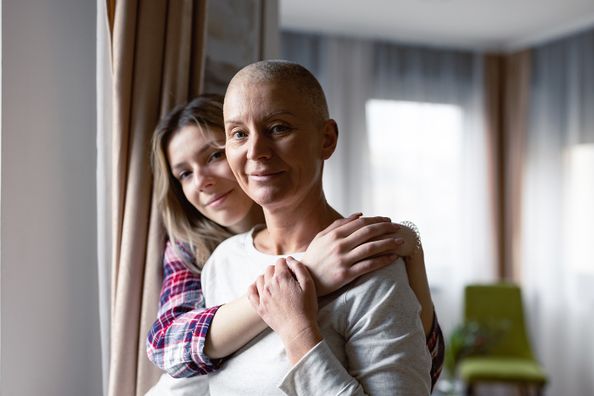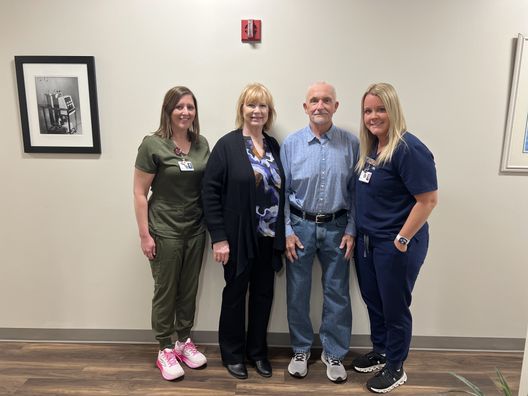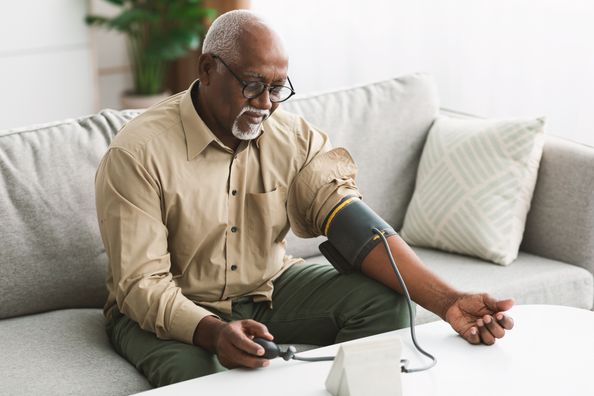I’ve received a cancer diagnosis. What’s next?
Many times your primary care provider will refer you to one of our oncologists. Our oncology team will contact you directly to set up an appointment, or, in some cases, speak to your primary care provider with this information who will share the details of your appointment with you.
What happens at my first cancer appointment?
We welcome you to bring a family member, friend, or caregiver to your appointments. You may also want to bring a notebook to write information about your diagnosis, treatment, or any other questions you may have.
- When you arrive at QMG’s Cancer Institute you will check in with our receptionists at the front desk. You will need to ensure to bring a copy of your insurance card (medical and prescription).
- Once you are checked in one of our nurses will bring you to a consultation or an exam room to go through the initial paperwork and information which includes:
- New Patient Form: This form will ask for information regarding your medical history, surgical history, family history, and current medications.
- Photo: Your nurse will capture your photo for patient verification purpose.
- Release Form
- Resource materials regarding your diagnosis
- Information about our Cancer Care department and contact information to get in touch with us.
- If you are not already in an exam room, your nurse will take you to one. He or she will then complete your vital signs (blood pressure, heart rate, temperature, height, and weight). You may be asked to remove your shoes for your height and weight.
- Your doctor will come in next to meet you and talk to you further about your diagnosis.
What happens when I meet with the doctor?
When the doctor comes in to see you, he or she will explain your diagnosis and the details surrounding it. They will begin by explaining their recommendations for treatment, whether it be surgical intervention, chemotherapy/immunotherapy (infusion or oral), or radiation.
When do I ask for a second opinion?
Empowering yourself with all the information available is crucial for your health decisions. A second opinion can provide valuable insights and confirm your initial diagnosis or treatment plan. Our team is happy to assist you in setting up a referral for a second opinion. Don’t hesitate to reach out and discuss your options. Remember, your well-being is our priority. If you choose a facility out of the area, we can work with them to provide routine care and infusions right here in Quincy. This will reduce your time away from home, friends, and family while providing the best treatment experience.
When do treatments start?
Start dates for your treatment depend on the location of your cancer, stage, and National Comprehensive Cancer Network (NCCN) guideline recommendations. Our Cancer Institute team follows these recommendations which are considered the gold standard in oncology. We do not begin treatments without insurance approval.
When do I meet with a care navigator?
Typically at your first consult with our Cancer Institute team, you’ll meet your care navigator. The care navigator is there with you throughout your care to support you.
What kind of questions can or should I ask?
All of them. We want you to feel comfortable with our entire team, the nurses, doctors, advanced practice providers, care navigators, and financial counselors. No question is off-limits, and we are here to help you.
- What’s the cancer’s stage? What does that mean?
- Will I need other tests before we can decide on treatment?
- What are my treatment choices?
- Will my treatment make me sick?
The American Cancer Society website is a great resource for cancer patients and the worksheet at this link has a comprehensive list of questions.
What is hematology?
Hematology is the science or study of blood and blood diseases. All of our cancer care physicians are board-certified in oncology and hematology. Hematology includes the treatment of blood cancers including leukemia, lymphoma, and myeloma, but conditions treated by a hematologist are not always related to cancer
Why do I need to see a hematologist?
If your primary care provider wants you to see a hematologist, that doesn’t mean you have cancer. A hematologist has additional training and education on diseases of the blood. Your primary care provider may feel our hematologists are better suited to treating a variety of blood disorders such as anemia, hemophilia, and blood clots.
What is infusion?
Infusion is where liquid medicine is administered intravenously. Infusion is done either via an IV in your hand, arm, port catheter, or PICC line. Learn more about our Oncology Infusion Center >
What is chemotherapy?
Chemotherapy is a cancer treatment used most often to describe many different kinds of drugs used to treat cancer. Depending on your treatment plan chemotherapy is either given as a pill or an infusion. Infusion is where liquid medicine is administered intravenously. Infusion is done either via an IV in your hand, arm, port catheter, or PICC line.
Can I bring someone with me to my treatments?
Yes, we want you to feel comfortable while here for your treatment. Visitors are limited to one visitor per patient in the treatment area. Exceptions to this are during teaching/education sessions and/or special circumstances. Other guidelines include:
- Visitors must be at least 16 years old to enter the treatment area. Exceptions to this are during teaching/education sessions and/or special circumstances.
- For safety concerns, pregnant women are not allowed in the infusion center, unless they are being treated.
Does my insurance cover cancer treatments?
Before you receive treatment, our team researches your insurance company and individual plan. Your insurance company should be able to give you an estimate of your cost, so you know your financial responsibility prior to starting your treatment.
How much does cancer cost? (doctor visits, chemo, prescriptions, etc.)
The cost of cancer depends on your individual insurance plan, the type of cancer you have, and the treatment regimen prescribed. The cost varies from person to person and case to case.
Learn More About Our QMG Cancer Institute >
Health Topics:







